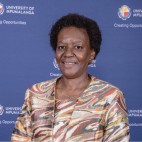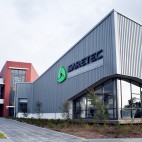As land reform takes centre stage ahead of municipal elections this year, the South African Property Owners Association (SAPOA) has called for professionals in the property sector to arm themselves with the right skills to navigate this exciting but often controversial terrain.
The potential for transformation through property ownership in SA is enormous, but professionals in the commercial property industry must equip themselves with the right knowledge, insight and experience if they are going to be able to respond effectively to the challenges facing the sector today.
According to Neil Gopal, CEO of the South African Property Owners Association (SAPOA), land reform is likely to take centre stage in the run-up to municipal elections across South Africa this year, and those working in the sector need to understand the implications of the proposed reforms as well as contribute to the development of a property sector that is more inclusive.
“Never before has it been a more exciting time for professionals in the commercial property industry to grapple with the issues around the rights and realities of present and future landowners,” Gopal said.
South Africa's main house of Parliament took the first step last Tuesday to pave the way for controversial land reforms that will limit foreign and local ownership of land. But Gopal said the debate around whether or not the controversial land reform bill will stand up to the scrutiny of the Constitutional Court or the practicalities of commercial land usage in SA will continue. “Regardless of what happens in the courts, the commercial property sector in is in need of professionals with the right knowledge to drive transformation through land ownership.”
SAPOA runs an annual programme in association with the UCT Graduate School of Business (GSB) which has become the highest recognised qualification in the commercial property field.
“The Property Development Programme is designed, to sharpen the skills of senior managers in the commercial property field and the programme typically attracts professionals from the financial, legal, architectural, engineering, quantity surveying, property valuation, building planning and broking sectors, with a relevant learning programme for the development of managers and leaders at senior level,” Gopal said.
Delegates are selected from a diverse range of professions and career backgrounds essential to the field of commercial property development. Participants are arranged into groups or teams with each group containing a full set of professional disciplines from the eight or nine team members. A maximum of 72 ‘students’ can be accommodated on a course. The first week of the course comprises day and night lectures and the second week exposes the groups to a vacant site in Cape Town where each group has to produce, within five days, a complete feasibility and bankable development plan of the site.
“The calibre of participants is very high and the standard of instruction is pitched at senior and potential senior management. All aspects of the development process are covered from council zoning to architecture, engineering, financial feasibility and marketing. A panel of judges review the development plans and the top three winning teams are announced at a ceremony on the concluding day,” he said.
GSB director, professor Walter Baets said: “PDP delegates will leave the course with increased confidence in the areas of financial management, group dynamics, strategic thinking, negotiation, presentation skills and economics. The GSB is the perfect setting for a course of this type, attracting participants who want to make a difference in business and society and who feel that this needs a more values-based, sustainable approach.
“It is critical to South Africa’s future that government, business and society work together to ensure that the country has a sustainable post-reform land tenure system - a system that will ultimately lead to the alleviation of poverty, the protection of food security and overall enhancement of democracy,” he said.
The Property Development Programme 2016 runs from 19 to 31 July, and is NQF-7 certified and recognised by professional institutions, enabling delegates to claim CPD (Continued Professional Development) points.
For more information please contact the course convenor - Mafonti Marobi on +27 (0)11 883 0679, by email: hr-education@sapoa.org.za or visit the SAPOA website:www.sapoa.org.za/pdp.htm.






